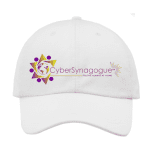Torah Dedication Sermon
“Don’t get mad,” said the philosophers of the eighties, “get even.”
It’s hard to say if the objective of the ten plagues was for the Almighty to get even with the nation that had enslaved the Hebrews. Certainly, there are Midrashic sources that correlate the ten plagues as direct punishment for Egyptian crimes against the Jewish people. (Tana D’bei Eliyahu Chapter 7) but perhaps we might say that the Jewish people got even.
There is, however, no scriptural reference to the fact that they got mad. In fact, each time Moshe went to Pharaoh a serene and calculated negotiation occurred. “Let My people serve Me,” Moshe commanded. When Pharaoh refused his obstinence was met with a clear and calculated threat. “If you refuse to allow the people to leave, I will send the following plague in your land.” And so it went. Sometimes a plague immediately followed a warning, other times plagues came with no warning at all. When Pharaoh found Moshe and arranged for a cessation of the scourge, Pharaoh reneged on his commitment soon after. Moshe became frustrated, perhaps he even became impatient, but there was no anger until the final plague. Then, he not only got even, he got mad.
Moshe warned Pharaoh with the words of Hashem, “At about midnight, I will go out in the midst of Egypt and every firstborn in the land of Egypt shall die.” (Exodus 11:4) Though Moshe detailed the ramifications of the plague he was greeted with an apathetic response.
The Torah tells us, that “Moshe left Pharaoh in burning anger” (Exodus 11:8) Why, only then did Moshe storm out in a rage? Was he not accustomed to the callous recklessness of the Egyptian leader? What irked him during the last encounter more than any of the previous ones?
Moses showed a calm composure until he didn’t. We the People Israel maintain a calm composure through a daily barrage of hate that is delivered by rockets, rowdy crowds, and repugnant rhetoric. It would be easy to throw up our hands and say, “What’s the use anyway? Can I really make a difference?” We can make a difference by harnessing the feelings of anger and despair and turning them into something that will promulgate an important mission of the Jewish People. Tikun Olam.
Isn’t that what we are doing today? Amid the exponential rise of Anti-Semetism? We are here proclaiming to the world that we are Jews. We don’t break that easily. This not the first time we have been met with evil and it won’t be the last. Rabbi Tarfon in the Ethics of our Fathers said: “It is not your responsibility to finish the work [of perfecting the world], but you are not free to desist from it either” (2:16).
Miriam, by bringing this Torah to the Five Star community for use while you are a resident here is sending a message to the world. The Torah is the most precious article of Jewish life. In times of great joy, we hold it high, a symbol of G-d’s eternal commitment to us. In times of need, we pray in its presence, acknowledging our unbreakable connection to G-d.
Remarkably, despite years of upheaval and suffering, not one of its 304,805 letters has ever been changed. The words we read in synagogue today are exactly those recorded by Moses and meticulously transcribed for generations.
Our sages have taught that each and every Jew has a letter in the Torah corresponding to his or her soul and spiritual identity. Just as each letter is an essential part of the Torah, so too each and every Jew is of utmost importance and constitutes an essential and integral part of the Jewish people.
Thank you, Miriam, for your foresight and commitment to our Jewish Faith. Through reading this Torah on Shabbat and holidays we are indeed healing the world. It is a Tree of Life for those who hold fast to it and all of it’s supporters are happy.
